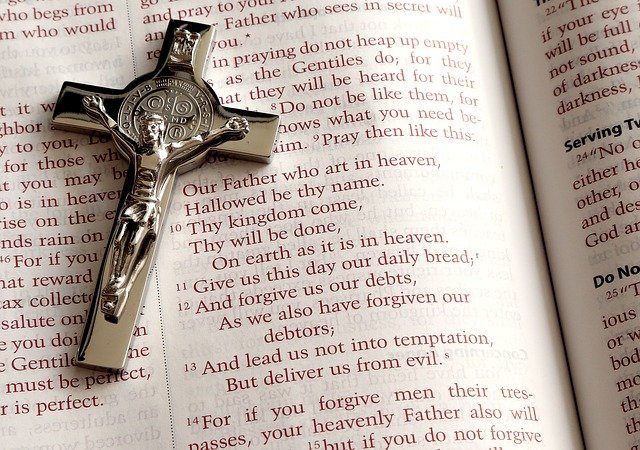Give us this day our daily bread. And forgive us our debts, as we also have forgiven our debtors. – Matthew 6:11-12
Jesus could have followed “bread” with a totally new sentence beginning with “Forgive.” That would have been grammatically correct, because every grammar teacher knows you don’t begin a sentence with a conjunction.
But Jesus used different grammar. Beginning a sentence with “and” calls attention to what follows. For all the years I’ve prayed the Lord’s Prayer, I’d never noticed that conjunction. Give us something to eat, AND forgive us as we forgive others.
It’s as if Jesus is making a grammatical—and spiritual—point. Filling both our needs, our bellies and our souls, are equally important. Bread for one, forgiveness for the other: your life is malnourished if you don’t have both.
So, when we pray Jesus’ prayer, we’re affirming that we must pay as much attention to living grace-fully as to living bread-fully.
That’s really a radical statement, but it fits into the central nature of his prayer: to honor and thank God, to do what God wants, and to live as if we’re in God’s kingdom, because we are. To pray for food AND grace is what distinguishes us.
If we’re honest, we can’t pray the Lord’s Prayer, encounter this grammatical mistake, and go on comfortably with our lives. His words must always stop us. Am I aware of my spiritual hunger? How intentionally do I feed it? Do I adjust my lifestyle and priorities accordingly? Am I body-soul balanced? Do I live grace-fully with myself? With others? Do I show others how I hunger and thirst for righteousness, justice, and compassion?
Jesus’ prayer was only 58 words, not counting the “amen.” But they change us when we pray them from the heart, grammatical mistakes and all.


Thank you Greg. I’m looking more for spiritual food than food for my body.
Thank you .
So much to think about here. So we are getting it right feeding body AND soul.
To put it simply.